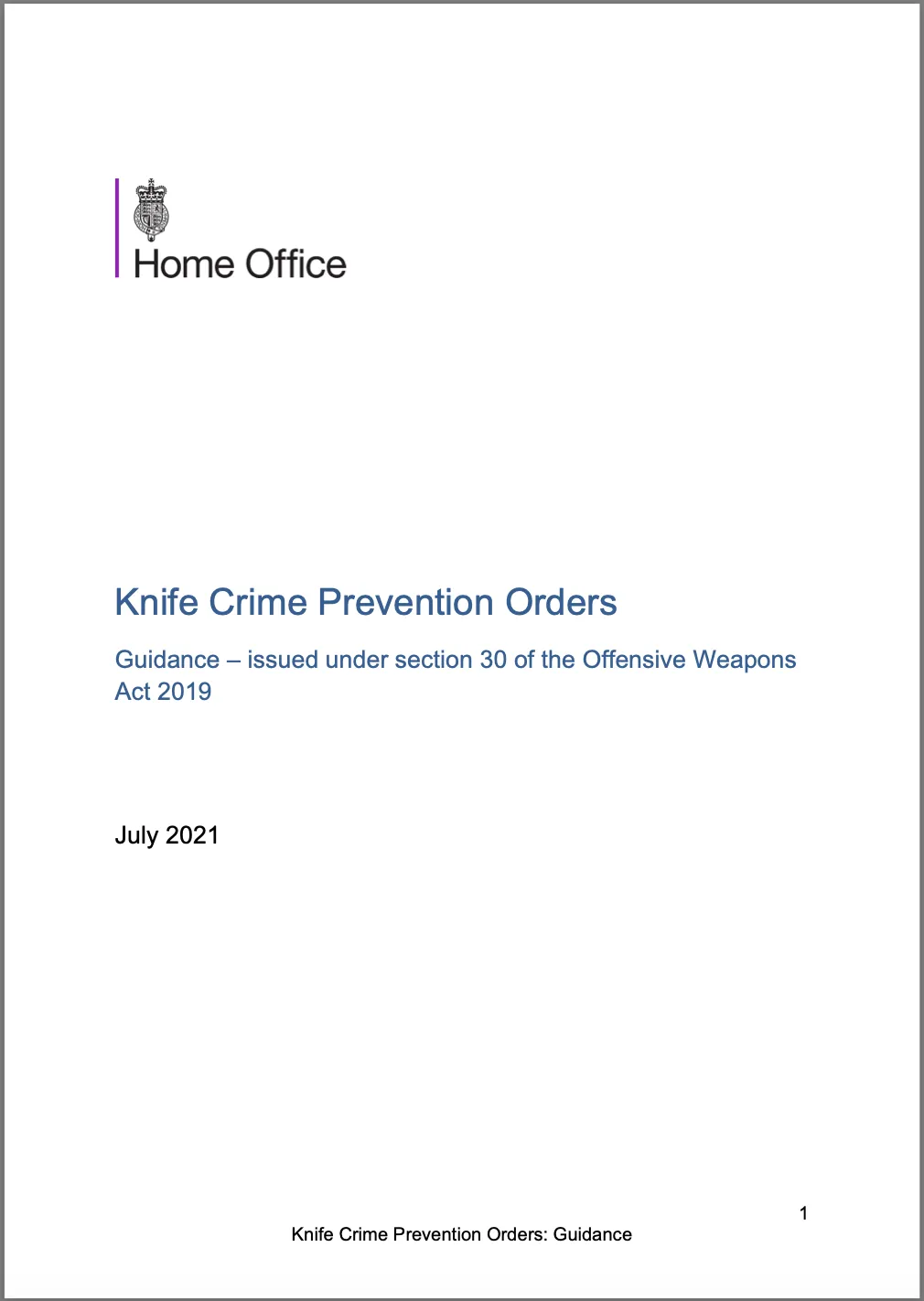
This guidance complements the KCPO Framework, providing operational direction to police, CPS, courts, Youth Offending Teams, and community partners on implementing Knife Crime Prevention Orders. KCPOs are civil orders introduced under the Offensive Weapons Act 2019 to prevent knife-related crime and further offending, used either on conviction or in other contexts.
They target individuals aged 12+, particularly young people and adults at risk. Orders can include positive requirements—mandatory attendance at interventions, mental health or substance support—and prohibitions, such as exclusion zones, non-association, or location/time restrictions. For children and youth, requirements must consider protected characteristics, schooling, and maturity, with input from Youth Offending Teams and third-sector organisations.
The application process varies: on conviction, CPS applies and courts require civil standard proof, evidence of risk, and necessity for protecting individuals or the public. In non-conviction scenarios, police initiate applications—sometimes urgently, enabling interim orders without notice. Applications must specify tailored prohibitions/requirements and nominate a supervising individual or agency, responsible for monitoring compliance and reporting breaches to police .
KCPOs typically commence upon issuance, extendable through court review or variation, with mechanisms for discharge if risks diminish. Breaching an order is a criminal offence. Regular reviews—especially for those under 18—ensure appropriateness and responsiveness.
In essence, KCPOs are designed as preventative, multi-agency tools combining restrictions and supportive interventions to steer individuals away from knife crime, tailored according to age, context, and risk, with oversight elements to enforce accountability.